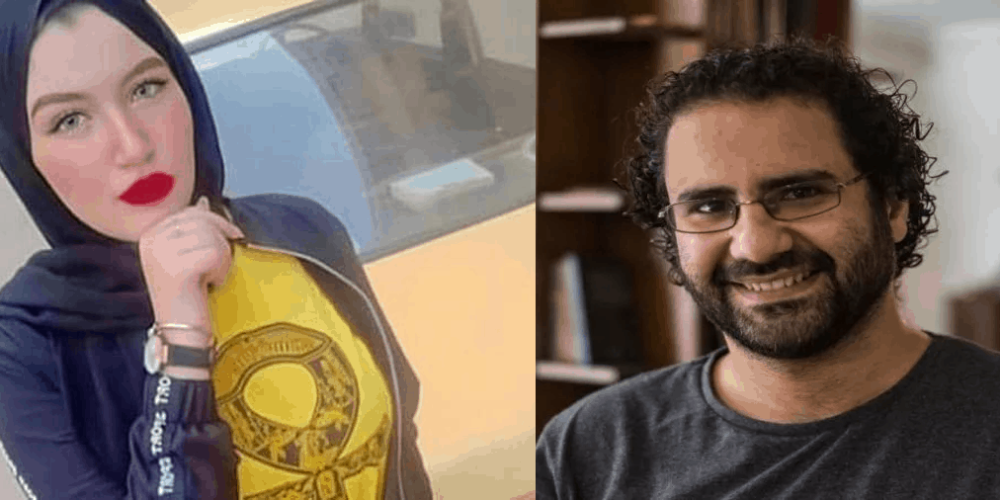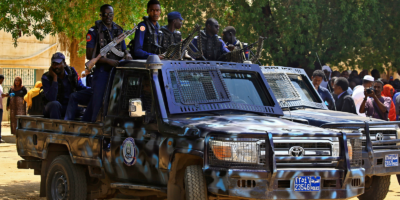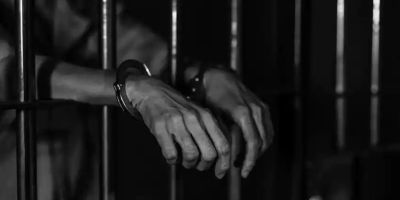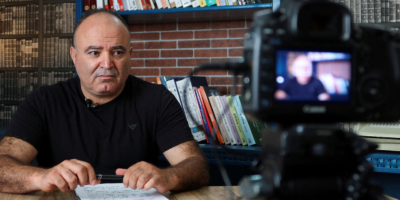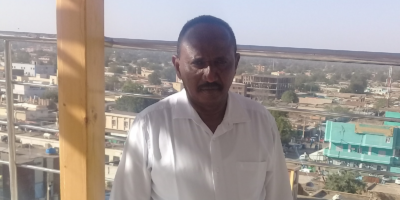News briefing: Translation and editing by: Committee for Justice
Geneva, 1 December 2020
United Nations human rights experts have expressed their grave concern over the harsh detention conditions of the Egyptian activist, Alaa Abdel Fattah, and the TikTok women influencers who have been detained on charges of incitement to immorality.
Allegations of torture and denial of communication:
In a UN memorandum sent to the Egyptian authorities on 28 September 2020, which has not received a response yet, the experts reiterated that the state has a duty of care for individuals in its custody under Article 10 of the International Covenant on Civil and Political Rights (ICCPR), which obliges to ensure humane conditions of detention and respect for the dignity of individuals deprived of their freedom.
The experts pointed out that the cruel, inhuman or degrading treatment or punishment suffered by the activist Alaa Abdel Fattah contradicts Articles 2 and 16 of the Convention against Torture and other Cruel, Inhuman or Degrading Treatment or Punishment (CAT). They stressed on the importance of contact between detainees and legal counsel and relatives as a guarantee against ill-treatment. The experts also expressed their concern about the authorities’ refusal to facilitate any form of communication, which may constitute a form of punishment.
Accusations of violating public morals affects the position of women in society:
The experts also expressed their concern about the disproportionate punishment applied to female TikTok influencers, who have been arrested for posting videos and pictures on TikTok, and have been accused of behaviour incompatible with public morals and charged by the Public Prosecution of violating family principles and values in Egyptian society, violating the sanctity of private life, and accused of prostitution, debauchery, and incitement to immorality. The Cairo Economic Court has sentenced some of them to two to three years in prison, while others have been heavily fined, in the amount of EGP 300,000 (approximately $17,000).
The experts pointed out that the accusation of violating the principles and values of the family and public morals affects the position of women in society in general, and that such sanction refers to a gender-based discrimination which is inconsistent with the Convention on the Elimination of All Forms of Discrimination Against Women, which Egypt ratified on September 18, 1981.
In their memo, the experts pointed out that the grounds for restricting speech on the basis of morals cannot be used to protect understandings of morality deriving exclusively from a single social, philosophical or religious tradition. However, the concept of morality must be understood in the light of the universality of human rights. In addition, the legality requirement in article 19 (3) of the International Covenant on Civil and Political Rights (ICCPR) states that laws restricting speech must be drafted with sufficient precision to allow individuals to regulate their behavior accordingly.
UN demands from the Egyptian authorities:
At the conclusion of their memorandum, the experts called on Egyptian authorities to provide detailed information about the facts and the legal basis for the charges, as well as the new cases opened against Alaa Abdel Fattah. They also asked Egypt to provide information on the reason why charges related to terrorist acts and spreading false information have been issued against Abdel Fattah, and how the proceedings against him comply with Egypt’s obligations under international human rights law.
The experts also called on Egypt to provide details, wherever results are available, of any investigation, and judicial or other inquiries carried out in relation to the allegations of torture against Abdel-Fattah, and if an investigation has not been launched, clarify why and how this is in line with Egypt’s international human rights obligations. They also asked authorities to provide information about the conditions of detention of Alaa Abdel Fattah in the Tora Maximum Security Prison 2.
The experts also called on authorities in Egypt to provide information on the criminalization of women social media users under the Cybercrime Law No. 175/2018, and any measures taken to ensure that the law is not issued in an arbitrary manner against women. They also asked the authorities to explain the reasons for the arrest of TikTok women influencers, and the respect to their rights to freedom of expression and right to privacy.
